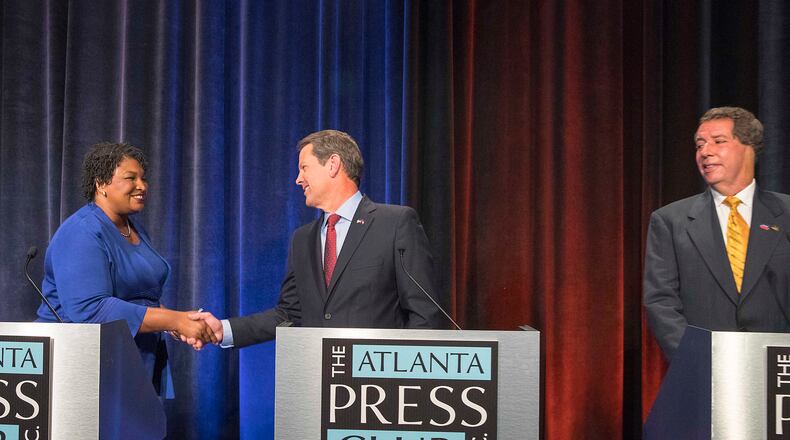A bill introduced in the Georgia House would make it easier for independent and third-party candidates to appear on the ballot.
The measure, House Bill 191, would reduce the number of signatures required for candidates to seek office.
Georgia has some of the most restrictive ballot-access laws in the country.
Currently, candidates must submit a nomination petition signed by tens of thousands of registered voters — 1 percent of voters for statewide offices or 5 percent of voters for other offices.
Under the bill, candidates would need to gather signatures from just 200 voters or 1 percent of the total number of voters in the last election, whichever is less.
"This would be a way to help our democracy," said the bill's sponsor, state Rep. Dar'shun Kendrick, a Democrat from Lithonia. "The more choices that people have, it makes us better as politicians because it moderates us."
No third-party candidate has collected enough signatures to appear on the ballot for the U.S. House since the state passed an election qualifying law in 1943.
Candidates from political parties can run for statewide office without having to collect signatures if their party's candidate in the last statewide general election received votes from at least 1 percent of registered voters. For non-statewide races, third-party candidates still must collect signatures from 5 percent of registered voters.
Kendrick said she understands that her proposal, which has both Democratic and Republican co-sponsors, will likely meet resistance from other legislators.
“I think you have to put aside politics and look at the greater good that would come by giving people more choices and access to the ballot,” Kendrick said.
About the Author
Keep Reading
The Latest
Featured




